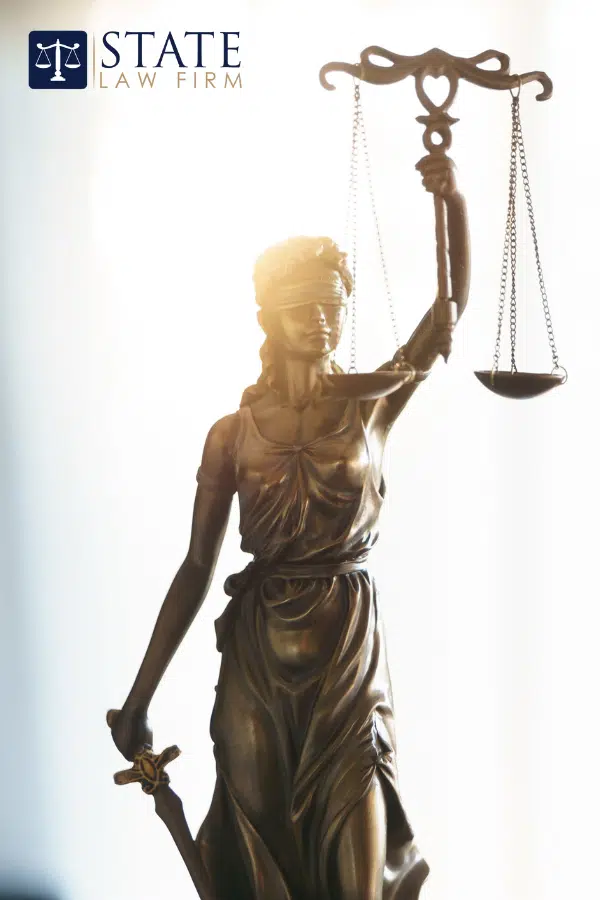In personal injury cases, evidence can make or break a claim. But what happens when vital proof disappears before it ever sees the inside of a courtroom? Unfortunately, this scenario is more common than many realize. A 2023 survey by Exterro found that 68% of legal professionals have dealt with at least one spoliation issue in the past year, often involving deleted digital records or mishandled physical evidence source.
Spoliation of evidence, or the intentional or negligent destruction of relevant material, poses a serious threat to justice—especially in high-stakes personal injury claims where physical evidence, digital records, or even security footage can be pivotal. Whether you’re dealing with a car accident in Sherman Oaks or another form of negligence, preserving evidence is crucial. In some cases, our attorneys have even helped clients recover traffic camera footage before it was lost forever.
At State Law Firm, we take spoliation seriously because we know that our clients’ futures depend on it. As a boutique personal injury law firm run by young litigators on the rise, we’re committed to holding the other side accountable—especially when they try to gain an unfair advantage by tampering with or erasing the truth. In this article, we’ll break down what spoliation is, why it matters, and what you can do to protect your claim when evidence is at risk.
Understanding Spoliation of Evidence: Definition and Legal Implications
Spoliation of evidence refers to the intentional or negligent destruction, alteration, or failure to preserve evidence that may be relevant to ongoing or anticipated litigation. This act can compromise the integrity of the legal process and severely impact a plaintiff’s ability to prove their case.
Under California law, spoliation can lead to significant consequences. While California generally does not permit an independent tort claim for spoliation, courts may impose sanctions, draw adverse inferences, or even dismiss claims or defenses when evidence is wrongfully destroyed during litigation.
Pro Tip: If you suspect evidence in your case has been altered or destroyed, act quickly. The earlier you bring it to your attorney’s attention, the more options they’ll have to protect your case.
The Types of Evidence Commonly Subject to Spoliation
In today’s digital age, nearly any form of documentation can be spoliated. Common types include:
- Physical Evidence: Damaged vehicles, defective products, personal belongings, or hazardous materials.
- Electronic Evidence: Emails, text messages, metadata, and GPS records.
- Digital Records: Surveillance footage, dashcam videos, or medical charting software data.
- Witness Testimony: When witnesses are discouraged from testifying or go unpreserved.
- Documents: Medical bills, repair estimates, and accident reports.
These types of evidence often play a central role in car accidents, slip-and-fall claims, and other personal injury disputes. When someone fails to preserve this information—especially when they have notice of a potential claim—it can unfairly shift the balance of justice.
The Duty to Preserve Evidence: Who is Responsible?
Once litigation becomes reasonably foreseeable, both parties—including individuals, businesses, and insurance companies—have a legal duty to preserve all relevant evidence. This duty can arise even before a formal complaint is filed.
Failure to preserve evidence after a car crash, for example, may affect not only your claim but your credibility. That’s why our Sherman Oaks car accident lawyers advise clients to act fast.
Preservation triggers include:
- Receiving a demand letter or notice of claim
- Involvement in a serious accident
- Employer or corporate knowledge of an incident
Consequences of Spoliation of Evidence: Legal Ramifications and Sanctions
When a party destroys relevant evidence, courts can impose serious consequences such as:
- Adverse inference instructions: A judge may instruct the jury to assume the missing evidence would have been unfavorable to the party responsible for its destruction.
- Exclusion of expert testimony or other defenses
- Monetary sanctions or attorney’s fees
- A default judgment or dismissal in extreme cases
At State Law Firm, we’ve seen how spoliation can significantly impact the outcome of a case. We prepare our cases to anticipate this kind of behavior and build strong strategies in response.
How to Prove Spoliation of Evidence in Court
To hold another party accountable for spoliation, the following elements typically need to be proven:
- The party had control over the evidence.
- There was a duty to preserve the evidence.
- The evidence was either intentionally or negligently destroyed.
- The destruction prejudiced your ability to prove the case.
Gathering proof of spoliation requires swift action. That’s why we often help clients request traffic camera footage or send legal preservation letters to third parties immediately after an accident.
Preventing Spoliation: Best Practices for Individuals and Businesses
Whether you’re an accident victim or a business owner, here’s how to safeguard crucial evidence:
- Document everything early: Take photos, keep medical records, save damaged items.
- Preservation letters: Send formal notices to opposing parties and third parties with relevant evidence.
- Implement a document retention policy: For businesses, ensure digital and physical records are archived securely.
- Educate staff: Make sure employees understand their legal obligations when an incident occurs.
Pro Tip: Don’t rely on others to preserve evidence for you. If possible, obtain a copy for yourself or have your attorney do so on your behalf.
Protecting Your Case from the Risks of Spoliated Evidence – Take Action Now!
Spoliation of evidence can derail even the strongest personal injury claims—but it doesn’t have to. Whether you’re up against a large insurance company or a negligent business, having a proactive legal team makes all the difference. At State Law Firm, our young, driven attorneys are ready to tackle these challenges head-on, building solid cases and holding bad actors accountable.
If you suspect crucial evidence in your case has been destroyed or mishandled, don’t wait. Reach out today to get the legal support you deserve—and protect your claim before it’s too late.


